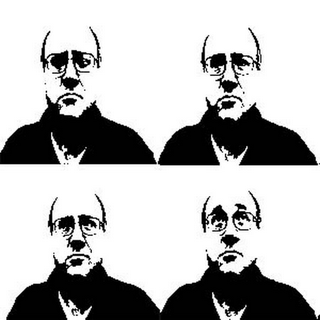Satire and the Importance of Being Mean

With movies like Thank You For Smoking and American Dreamz in theatres at the moment, I feel a little bit of relief that satire as a form is not dead. It bristles and crackles even on late night TV with The Daily Show and The Colbert Report where politicians, pundits and pop culture icons are caught in a crossfire of precisely aimed barbs and zingers and much broader flatulence that is the mustard gas of humour. Satire reminds us that it’s war out there and we are the targets. No one is safe in the camouflage of their innocuousness. Satire is the anthology of all the thoughts that have crossed your mind that you hope no one will ever hear.
It’s always been one of my favorite forms, despite the fact that people in literary circles tend to think of it as a ‘lower’ genre. Why this is, I’m not sure. I think it has something to do with its apparent lack of seriousness and its abundant mean spiritedness. After all, if you’re going to attack a social ill, you have to do it with the air of grave concern and at least a little good will. And if you’re going to look deeply into the human psyche, you have to show the full depths of feelings and memories of your characters. Satire, meanwhile, starts with the premises that nothing is not funny, being mean is a human right, and that humans are not all that deep.
But the satirist is not an idiot. He tries to come as close to reality as possible – like a kid staying inside the lines in a coloring book. Every now and again, the satirist has to cross the line – like Jonathan Swift suggesting that perhaps eating Irish babies is a solution to Irish poverty in his essay “A Modest Proposal.” But up to that point, his line of reasoning is quite reasonable. In fact, many satirical stories are based on perfectly reasonable lines of reasoning – that’s why they’re so funny and so frightening.
The short of it is, though, that satire is a victim of our times. In the age of irony (the 90’s) satire didn’t quite fit because sarcasm is not satire. Satire is tragedy with a vicious smile on its face. Sarcasm doesn’t require the same amount of effort. And with the increasingly earnest new millennium, satire has little room to grow – unless in the form of rebellion against the earnest attitude it is most antithetical to.
An absence of satire is always a bad sign for me. At the moment, though, TV is safe with the likes of Jon Stewart and The Simpsons. Film, while not wholly embracing the form, does bow to it regularly. Think of 1999 and three partial satires such as American Beauty, Fight Club and Being John Malkovich.
The form that is suffering most from satire’s absence at the moment is poetry. Remember poetry? The earnestness levels are high. And there are plenty of angry performance poets. But there are no real satirists out there – people who can combine anger with restraint, realism with the absurd, tragedy with comedy, hatred of humanity with moral concern for the species. A ‘lower’ genre. Right.
When the poets (even just a handful of them) can take their contempt for the form of satire and re-direct that hatred at their fellow man, the world will be a better, funnier place.
















